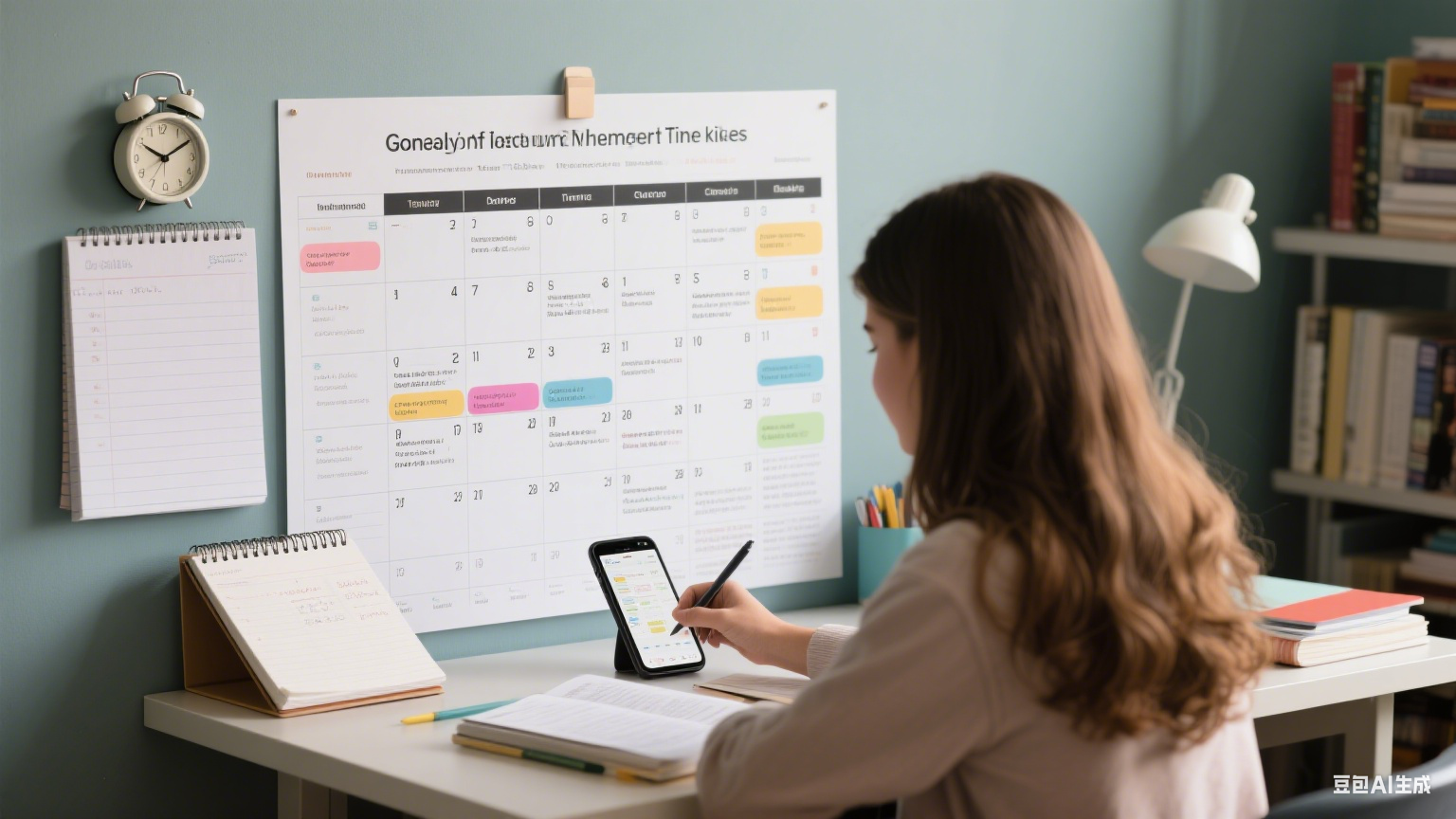
Attending classes, studying for exams, making friends, and taking time to relax can quickly occupy your schedule. If you often find yourself wishing there were more hours in the day, this guide will offer time management tips so you can accomplish what you need to do, have fun with your friends, and save some valuable time for yourself.
Create a calendar well ahead of time with all your upcoming deadlines, exams, social events, and other time commitments so you can see what’s coming up. Keep your calendar in a place where you can see it every day, such as in your planner or on your wall above your desk. If you prefer a digital calendar, check it first thing every day to keep track of important events.
After you’ve created your calendar, set periodic reminders to stay on track — such as completing a study guide in advance or scheduling a meeting for a group project. You can set an alarm on your phone, write it down in a physical planner, or add an alert to your digital calendar. These reminders will help you avoid last-minute rushes during particularly busy days.
Each person’s day is unique, so make sure your schedule works for you. If you typically start your day energized, plan to study or accomplish chores during that time. If you experience an afternoon slump, give yourself that time to take a guilt-free TV break or see friends.
Sometimes there really is too much to do in too little time. In these instances, take just a few minutes to evaluate your priorities. Consider which deadlines are most urgent, as well as how much energy you have. If you are able to complete simple tasks first, try getting them out of the way before moving on to tasks that require a lot of focus. If you are struggling to accommodate everything in your schedule, consider what you can postpone or what you can simply say no to.
Finally, remember to make time for fun and yourself, seek support when needed, and stay realistic and flexible in your approach.
原创编写 版权所有 侵权必究! 每日更新 个性化阅读 英语飙升!1.1.What is the main purpose of the passage?
A To describe student life.
B To offer suggestions.
C To tell a personal story.
D To analyze a problem.
解析:选B。B 推理判断题。根据第一段的“this guide will offer time management tips”本指南将提供时间管理技巧,可知,全文围绕如何有效管理时间展开,旨在为学生提供实用的建议和方法,因此主要目的是提供建议。故选B。
2.2.What is suggested to effectively use a calendar?
A Update it weekly.
B Use only digital versions.
C Share it with friends.
D Keep it visible daily.
解析:选D。D 细节理解题。根据第二段中的“Keep your calendar in a place where you can see it every day”和 “check it first thing every day”可知,无论是纸质还是电子日历,核心要求是每天都可见并查看。故选D。
3.3. Why does the author suggest studying during your energized hours?
A To improve focus.
B To follow a fixed routine.
C To avoid social events.
D To finish early.
解析:选A。A 推理判断题。第四段提到“If you typically start your day energized, plan to study or accomplish chores during that time.”如果你早上精力充沛就安排学习,隐含逻辑是精力充沛时学习效率更高、专注力更强,选项A“提升专注力”是合理推断,原文“accomplish chores during that time”暗示高效完成任务需要专注。故选A。
4.4.What should you do first when facing too many tasks in limited time?
A Start working immediately.
B Decide what matters most.
C Ask others for help.
D Focus on completed tasks.
解析:选B。B 细节理解题。根据第五段的“Sometimes there really is too much to do in too little time. In these instances, take just a few minutes to evaluate your priorities.”可知,当时间紧张、任务繁多时,应首先花几分钟“评估优先级”(evaluate your priorities),也就是明确最重要、最紧急的事项。故选B。